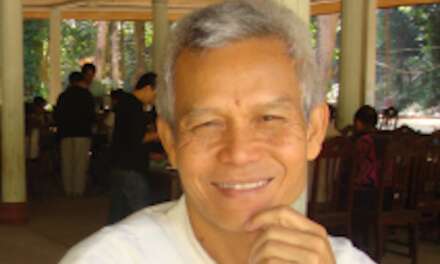By Seema Mustafa*
(This article was first published in Asian Age: http://www.asianage.com/)
Beirut, Aug. 13: The buildup to the ceasefire, if it takes place at all in real terms, has been violent and bloody. Israel has redoubled its offensive against Lebanon with south Beirut coming in the line of fire again after a gap of a little over 24 hours. International journalists and peace activists were taken by Lebanese social groups at a pre-arranged time to the Beirut suburbs to witness the extent of destruction. Minutes after we left the Israeli planes arrived in the afternoon on Sunday and showered the same area with bombs, the explosions reverberating through the entire city. It was supposed to be a message, the Lebanese said: "Do not try to get back to normalcy, we are still here."
South Beirut has been razed to the ground by continuous bombing since July 12 with only a six-day respite in between. Entire streets have ceased to exist as this part of the capital represented the social base of the Hezbollah and was targeted over and over again. Hezbollah secretary-general Sayyed Hassan Nasrallah's residence has been decimated, as have been the offices of the organisation. Hospitals, maternity hospitals, clinics, commercial centres, and civilian residential blocks have holes through them with toys and household articles lying scattered on the streets, mute reminders of the fact that this was once the most bustling part of the capital of Lebanon.
The Hezbollah has spent the last 24 hours beating back a major Israeli offensive. The "resistance", as it is popularly referred to, is fighting an equal, if not superior war with inferior and highly inadequate weapons. Twenty-seven Israeli tanks were destroyed in southern Lebanon by Hezbollah rockets, a fact that was covered on the Al Jazeera and Al Arabia TV channels with pictures of tanks occupied by civilians who have still not moved out of the southern areas. There has apparently been little mention of this in the international media, although the Israeli airport spent Saturday night literally carpet bombing the areas where the tanks had been attacked and successfully crippled.
What has attracted considerable attention in Beirut has been the shooting down of an Israeli helicopter by the Hezbollah, a first since July 12. It must be pointed out that the Hezbollah cadres, following Nasrallah's cue, believe in understatement and their political ideologue, Dr Ali Fayyad, had told us earlier that there were unconfirmed reports that a helicopter had been shot down. The reports, confirmed later at night, maintained that it had been shot down by a Hezbollah missile again a first since Israel attacked Lebanon named "Waid", meaning "Promise". The street grapevine insisted that the Hezbollah has yet another missile capable of reaching Tel Aviv and that this one is called "Zilzila", meaning "Earthquake".
Israel has lost over 24 soldiers in the past one day, again a report that has been confirmed by official agencies here. Despite trying to push deep into Lebanese territory, the Israeli forces are meeting very stiff resistance with the result that they are unable to enter the villages even after virtually carpet bombing many of these into what they hoped would be complete submission. Hezbollah's guerrilla strategy has proved extremely effective with the strike and retreat formula making it very difficult for the Israelis to move into villages and retain them even as the forces push forward. As a young man named Qasim, who returned from Dubai to be with his family, said, "They have not yet been able to reach the Litani river. Despite their power, our resistance has held them back." The costs to Israel militarily have been immense as, unlike 1982 when it could surround Beirut with no resistance whatsoever, it is finding it extremely difficult to counter the Hezbollah and the increasing losses have created a major rift within the Israeli government, and between the Israeli government and the Israeli Army.
The Hezbollah's Dr Fayyad gave a brilliant account, when asked by this reporter, about how Hezbollah had "won" the war. For there is not a Lebanese in the country, or an Arab citizen on the Arab street, who does not believe that the resistance has won and that Israel has been humbled, politically and militarily, for the first time since it came into existence. He said it was important to remember that Israel was the fourth largest Army in the world while Hezbollah had no weapons and a very limited structure of fighters stretching to a figure of just hundreds. He said that ideologically a Hezbollah fighter believes that he is on the right track, is strong-willed in his beliefs, knows that he is sacrificing himself for his country, and is a self-restrained fighter. Militarily, he is involved in no other activity but resistance, "and we have spent our years preparing ourselves to face Israel for we always believed that it would be aggressive again," he said.
Dr Fayyad said the first step was to adopt guerrilla tactics. The new element this time, he pointed out, was the rocket weaponry. "We cannot buy tanks and aircraft. Besides, even if we could, we would not be able to smuggle these in. But it was quite easy to smuggle in the rockets after buying these from the world market," he said. He said Hezbollah placed great stress on this "rocket strategy" and, today, possessed three kinds of rockets, each effective against tanks, ships and aircraft respectively. Hezbollah has succeeded in sinking an Israeli ship with posters carrying Hassan Nasrallah's portrait against the backdrop of a sinking ship available all across the Arab world. The rockets and the guerrilla tactics have made this aggression impossible for Israel with Dr Fayyad pointing out that it had attacked Lebanon this time positive that it would be able to walk through to Beirut.
The images of war and the tragedy are more than visible in Beirut: the schools, squares and hotels giving shelter to refugees from south Lebanon, the periodic sound of bomb explosions, the patients with burn injuries, fractures and lacerations in hospitals battling for life and trying to come to terms with the death of their relatives. Laila is lying in bed with her husband's sister crying in the bed next to her. They are the only two survivors of a family with Laila having lost her husband and two children. Her sister-in-law has lost her parents, her husband, and her brother amongst others. There is Ali, who can barely speak as he was thrown out of his van and sustained severe injuries when the bridge over which he was travelling in Beirut was hit by an Israeli bomb.
Hezbollah's Nasrallah was on TV. He only gives a statement to his own trusted network Manara, making it clear that he was not very happy with the ceasefire resolution as it sought to equate Israel's aggression with the Lebanese resistance, but he indicated even before the Lebanese government that he was quite prepared to support a ceasefire decision if that is what the government here agreed to. But he made it clear that this would be conditional to an Israeli ceasefire as the war was still not over, Israel was continuing with the bombing, and so Hezbollah was well within its rights to retaliate. He said the resolution should have had a clause to condemn the Israelis for killing civilians in Lebanon, and that they should have been made to pay a penalty. He was strong, understated, quiet, but very confident. He made it clear that Hezbollah could continue with the war, but that it wanted peace, and if Israel stopped so would Hezbollah. In Beirut on Sunday there was a certain expectancy in the air, despite the renewed Israeli bombing, that finally the Israelis would pull back and peace and calm would return to this nation torn by war.
* Seema Mustafa is a member of the 12-person International Civil Society-Parliamentary Peace Mission that is currently in Lebanon. She is Resident Editor of Asian Age.








